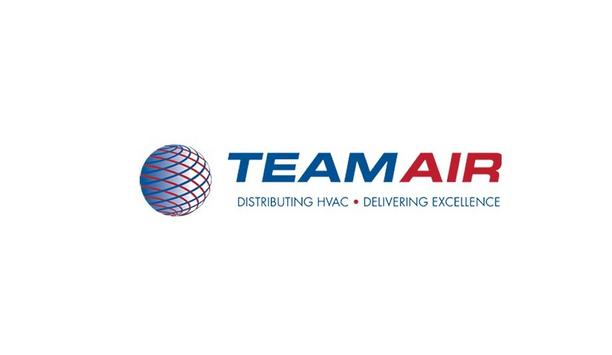Following the National Infrastructure Commission’s (NIC) call for ‘kick starting’ the heat pump and heat networks market, community-led heat networks would help to drive forward adoption from homeowners and businesses, according to REHAU.
The callout from the specialist polymer manufacturer is in response to the launch of the ‘Second National Infrastructure Assessment,’ released by the NIC on 18 October 2023. The report details a thirty-year plan for a low-carbon and resilient economy that supports economic growth and protects the natural environment. Critically, the NIC puts heat pumps and heat networks as the key solution to help decarbonize the UK’s building stock.
Community-led heat networks
Steve says that this would particularly incentivize people in rural communities to switch
The NIC is urging the government to provide an initial upfront subsidy of £7,000 to households who are installing heat pumps or connecting to heat networks, alongside zero percent financing, to encourage the move away from gas boilers.
Steve Richmond, Head of Marketing & Technical-Building Solutions at REHAU UK, believes that subsidies should allow for community-led heat networks to be created where they don’t currently exist, so that this £7,000 could be pooled together on a community level. Steve says that this would particularly incentivize people in rural communities to switch, where the use of oil, LPG, and direct electricity for space heating is much more prominent and typically more expensive for homeowners.
Low-carbon heat networks
Steve said: “It is great to see that the NIC is championing heat pumps and heat networks. It has already been proven that these low-carbon solutions work, and they are rapidly being adopted on the continent. The UK can follow similar approaches from Europe with community-led, not-for-profit heat networks, but only if there is enough incentive and motivation to do so, which has to come through policy changes from the government."
UK can follow similar approaches from Europe with community-led, not-for-profit heat networks
“Subsidies such as the Green Heat Network Fund are typically used on larger urban areas so we believe the government should also consider subsidies and simplify planning to help rural areas. In these places, up to 4.4 million households are dependent on oil, LPG, and direct electric heating to provide heating for their homes, which is costly both in carbon and bills. Installing low carbon heat networks using heat pumps in these areas would help save energy and reduce the reliance on these fossil fuels."
Renewable electricity community schemes
Steve added: “However, from an energy service company’s standpoint, these rural areas may not be seen as a focus, even with funding they technically could apply for from the Green Heat Network Fund. This is where putting the decision into people in the community’s hands can really work, with community champions and local councils pioneering the way."
"We have seen in Europe that community-led, not-for-profit projects bring great success, and this should be modeled for our country. It has worked in the UK for renewable electricity community schemes such as PV but now we need to turn our attention to heat decarbonization.”
European Heat Pump Association’s report
Statistical evidence for the contribution of citizen-led initiatives and projects to the energy transition
Steve’s words chime with another recent scientific report published on Nature.com, "Statistical evidence for the contribution of citizen-led initiatives and projects to the energy transition in Europe." In this report, aggregates that between 2000 and 2001, contributions from citizens from 30 European countries led to 22,830 renewable-based projects undertaken, and between 7.2 and 9.9 GW of renewable capacities installed.
Meanwhile the European Heat Pump Association’s 2023 market report, found that heat pump sales grew by 39 percent in 2022 to a total stock of 20 million heat pumps. This has prevented a record 52.5 megatons of CO2 emissions for Europe’s buildings sector–around the annual emissions of Greece.
NIC’s report
Steve also agrees with another key recommendation in the NIC’s report to address the ‘spark gap’ in order to fast-track the uptake of heat pumps and heat networks. The NIC calls for policy costs to be taken off electricity bills to ensure the cost of running a heat pump is lower than the cost of running a gas boiler.
“We must do whatever we can to start the accelerate the movement in electrified heat, and it’s imperative that everyone travels in the same direction. Heat pump sales are breaking records across Europe, helping them to becoming more self-sufficient and protecting their populations against volatile gas costs. We welcome the recommendations from the NIC and hope to see the changes to policy in the near future,” said Steve.
















